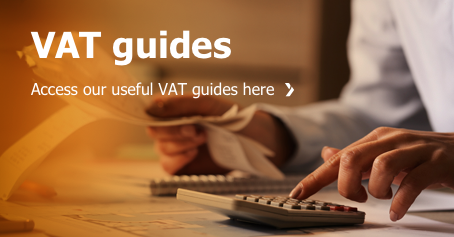Spain VAT Guide

Andres Garau
Spain VAT specialist
This guide is an overview of Spanish Value Added Tax (“IVA”) system, focused on how it affects foreign businesses trading with Spain. It is general in nature and unlikely to cover the specifics of your scenario. It should be read as such and not be construed as advice. For advice as to how your business is affected by Spanish VAT please contact a Kreston Global Spain VAT specialist.
- What is the tax called?
- What is the tax authority?
- What type of tax is it?
- What is it due on?
- What are the VAT rates?
- What does a VAT number look like?
- Is there a registration limit?
- When does a non-established entity need to register?
- When is the place of supply in Spain?
- Any special rules
- Does a non-established entity need a fiscal representative
- How often do VAT returns need to be submitted?
- Are penalties imposed for late registration?
- Are penalties imposed in other circumstances?
- Can VAT incurred by overseas businesses be recovered?
- Can VAT be deducted?
- Do I need to issue an invoice?
- Other
What is the tax called?
Impuesto sobre el Valor Añadido
What is the tax authority?
Agencia estatal de la Administracion tributaria (AEAT)
What type of tax is it?
Consumption based tax on consumers, on business transactions and imports
What is it due on?
Taxable turnover – VAT is added to the value of supplies of goods and services where the ‘place of supply’ is Spain (except Canary Islands, Ceuta and Melilla)
What are the VAT rates?
Taxable:
21% – default (standard) rate
10% – reduced rate
4% – super reduced rate
Exemptions for specific services/goods
4% – super reduced rate eg
- Basic food (eggs, flour, milk, bread, cheese, fuits and vegetables…)
- Books, newspapers, magazines
- Medicines for human use
10% – reduced tax eg
- Residential houses (first transmission done by developers)
- Hotel and restaurant services
- Food
Exempt from VAT eg
- Finance
- Insurance
- Real estate (second transmission)
- Health/welfare
- Education by eligible bodies
- House rental
What does a VAT number look like?
Domestic VAT number: B07925233
VAT for EU transactions: ESB07925233
Is there a registration limit?
No, there’s no threshold to be registered as VAT taxable person.
When does a non-established entity need to register?
- If it imports or do intracommunity purchases of goods or services into Spain
- B2C sale of goods or services, unless it is registered into the OSS system.
- B2B sale of goods or services normally the reverse charge is applied, but with some exceptions that require registration
VAT registration in Spain does not mean that the registered entities must charge VAT on all the sales when the place of supply is Spain, as the reverse charge is generally applied. Sometimes the registration is just needed to submit informative tax returns, without any tax liability.
When is the place of supply in Spain?
Supply of goods: when the goods are delivered into Spanish territory
Services supplying: generally if the receipt is located in Spain, but also, there are special rules for services, no matter where the receipt is located, such as:
- Land and property related
- Digital, telecommunications and broadcasting
- Services, including admissions, linked to physical performance, including artistic, cultural, educational, sporting, entertainment, exhibition and conferences/meetings
- Hotel, Restaurant and catering
- Hire of means of transport
- Passenger and freight transport
Any special rules
Several special location rules, that must be analysed individually.
Does a non-established entity need a fiscal representative
EU established: no fiscal representative is needed.
Non-EU established:
1) A fiscal representative is needed when the business is registered for VAT purposes (Taxable person in Spain). Fiscal representative is not liable of any debt.
2) A fiscal representative is needed when the company is non-registered but claims for the VAT refund. The representative is jointly liable of undue refunds obtained by the businesses
How often do VAT returns need to be submitted?
Normally quarterly – can be monthly
Are penalties imposed for late registration?
Yes, the late registration will imply a penalty of 200 euros, without prejudice to any penalties that may be applicable for failure to file VAT returns and to pay the debt arising therefrom.
Are penalties imposed in other circumstances?
The penalties for not paying the due VAT are the following:
- Voluntary regularization without prior requirement: a surcharge of 1% plus an additional 1% will be applied for each month of delay in the submission of the tax return and late payment. After 12 months the surcharge is 15%, plus delay interests. A reduction of 25% of the surcharge is applicable if it is paid into the deadline.
- Non-voluntary regularization (carried out by the AEAT): the penalty in this case reaches a minimum of 50% and a maximum of 150%, depending on the economic damage, whether the same infraction has been committed previously, and whether there have been billing infractions… This penalty may be reduced by 40% if the taxpayer does not present any allegations and by an additional 25% if the tax debt is paid.
Can VAT incurred by overseas businesses be recovered?
Non-established entities, which are not VAT taxable persons in Spain, may apply for the refund without the need to register, provided that they are established in the EU or in a country with which there is a VAT reciprocity treaty with Spain (currently, Norway, United Kingdom, Japan, Canada, Monaco, Israel and Switzerland). A fiscal representative must be appointed for non EU businesses. There are certain operations for which a reciprocity treaty is not required, but very limited. Deadline for the refund application is before 30th of September of the year after the VAT is due.
If the non-established businesses is a VAT taxable person in Spain, it may apply for the refund by the same procedure as the established ones, having to register in Spain for VAT purposes, and without the need for a reciprocity treaty and fiscal representative appointment.
Can VAT be deducted?
VAT incurred on expenditure can be reclaimed where it is used in connection with ‘taxable’ sales, or with activities carried out in Spain that would allow a registered company to deduct the VAT. See limitations in the prior point.
VAT on expenditure used in connection with exempt supplies cannot usually be reclaimed.
Do I need to issue an invoice?
Invoices must be raised always, but using the Spanish VAT number when the activity is linked to the registration in Spain. There are specific requirements for what is included on VAT invoices. Invoices may be raised in foreign currency but the VAT amount must be quoted in EUR.
Other
Canary Islands, and the autonomous cities of Ceuta and Melilla are not part of the VAT territory, so they have special regulations.

